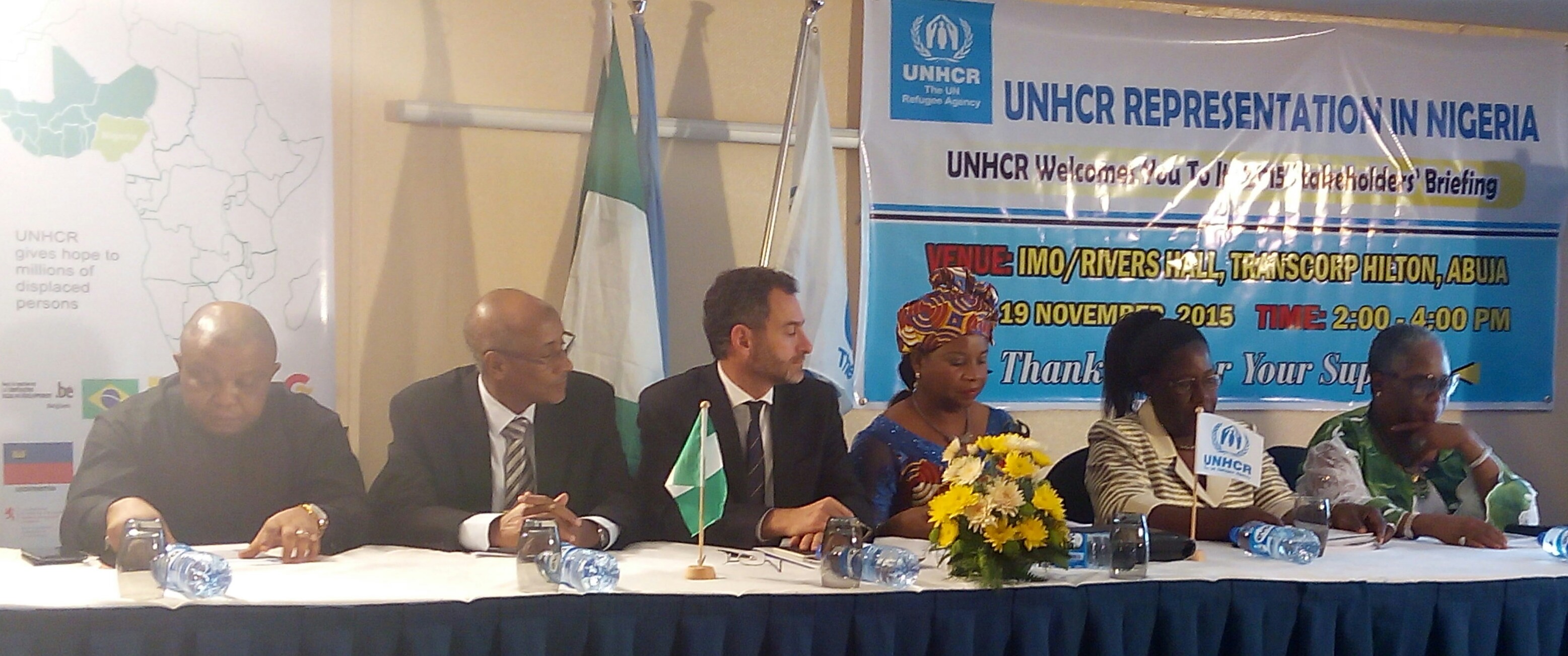By Ndidi Chukwu
The United Nations High Commission for Refugees (UNHCR) has decried the prevalence of grave violations of children’s rights and exposure to heightened risk of sexual violence and physical abuse of Internally Displaced Women and Children in Nigeria’s North East.
The UNHCR said one displaced person in Nigeria without hope of survival is too many, to compare to the plight of over 2,233,506 million displaced citizens of Nigeria. The commission said only 8% of the population of the displaced persons are in IDP camp while majority are in host communities, some in informal shelters, others living within the household of a host without adequate response.
UNHCR Country Representative in Nigeria Ms. Angele Atangana said increased vulnerability of women and girls to rape, intimate partner violence, sexual abuse and exploitation, faced by IDPs in Nigeria is worrisome.
Atangana said the absence of legislation and policy that deals explicitly with IDPs, and the weak coordination mechanisms among emergency response agencies exposes the country’s inability to provide minimum humanitarian standards for shelter, food, water, sanitation, health or education to these displaced citizens of the nation.
UNHCR according to Atangag “have seen in the last one year that insecurity persists among civilians population in North East Nigeria with increased threat to life and freedom of movement” she also said the precarious situation of these displaced persons have exposed them to rely on negative coping strategy due to unlimited access to essential services and emergency assistance.
Atangana also stated that majority of the displaced persons who are living in host communities face different form of exploitation by their host, security forces, youth and vigilante groups.
She observed that there has been sporadic access to humanitarian organisations and agencies due to insecurity. The UNHCR also decried the limited profiling and registration of IDPs to identify the most vulnerable populations for protection, and shelter, this also contributes to lack of preparedness and proper prepositioning of relief materials resulting in poor response to the needs of the IDPs.
The Commission is calling on the Nigerian government to develop effective strategy to identify and respond to the needs of the Internally Displaced Persons in host communities.




